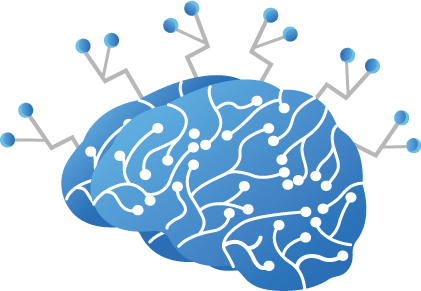What is HR Psychology?
Understand people to exceed HR goals
HR psychology is an understanding of how human resources processes and interventions are influenced and impacted by how people think and behave. Discover Cezanne HR’s series of reports on the value of psychology in human resources management:

Relationship building psychology
Relationship building with results
Relationships sit at the heart of HR, enabling people professionals to win the trust and respect of the workforce. This is important for HR to be able to perform everyday HR tasks as well as realising real change in the business. Alongside trust and respect, being visible is also key to connecting with people.
Read the report for:
- survey insights about HR in relation to trust, visibility and respect
- UK charity, Brook’s case study on HR relationship building
- tips on using HR software to develop rapport with staff.

What is relationship building psychology?
The definition of relationship building is the shared experiences and history between two people, what bonds them, and how they feel about each other. Applying psychological insight to professional relationships allows HR to optimise the positive outcomes, for both employer and employee, from the connection.
Performance management psychology
Motivate employees to perform
Achieving the highest performance results from employees is top of mind for many HR professionals and business leaders. But optimising performance can be easier said than done.
Read Cezanne HR’s performance management psychology report:
- develop a better understanding of motivation, feedback and aptitude
- improve your performance management processes, and
- achieve a higher ROI on performance management.

What is performance management psychology?
The definition of performance management is coaching, guiding and directing (when necessary) employees to achieve maximum output for an organisation, while being mindful of the wellbeing and aspirations of the workforce. Using psychology to motivate people to perform well is a skill, and often a balancing act so employees aren’t overextended and burnt out.
Onboarding psychology
Onboard well for future success
Everyone knows that first impressions are critical – professional relationships are no exception. Onboarding isn’t just about giving a new employee the tools and training to perform their role, it’s also about the business making a winning first impression.
This report has insights from business change psychologist, Nadine Michaelides, case studies from Principal Research Fellow at the Institute for Employment Studies, Dan Lucy, survey findings and more. Discover:
- change psychology, first impressions and the psychological contract
- positive examples of onboarding via case studies
- statistics and commentary on how employees experience onboarding.

What is onboarding psychology?
The definition of onboarding psychology encompasses the psychological processes that people go through when they start a new job, including dealing with change, forming first impressions, and building a psychological contract that continues to develop and evolve as employment goes on.
And don’t miss our onboarding webinar…
We launched our report on onboarding at our webinar, ‘The Psychology of Onboarding: 5 insights to help HR improve their new starter experience’, May 2020.
The webinar featured Nadine Michaelides on onboarding psychology, Dan Lucy highlighting key findings from the report’s employer case studies, Justine Brown discussing the current state of onboarding with COVID-19, and Cezanne HR sharing the top findings from ‘The Psychology of Onboarding: Optimising the new-starter experience in the digital age’.
Watch the webinar
Did you know?
Only 5% of respondents said they’d best describe their performance conversations as motivating and inspiring.
* According to The Psychology of Performance Management: Understanding motivation, feedback and aptitude to improve performance

